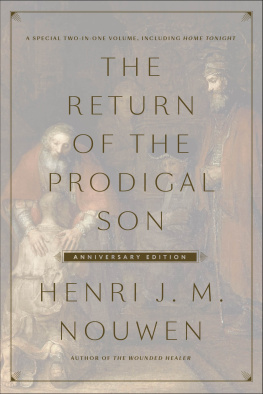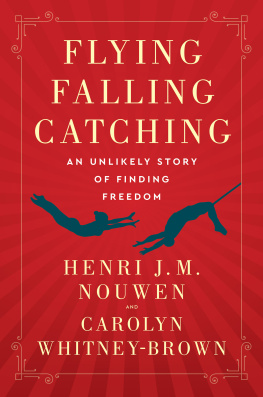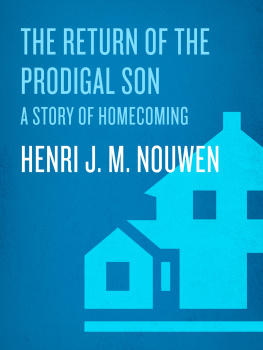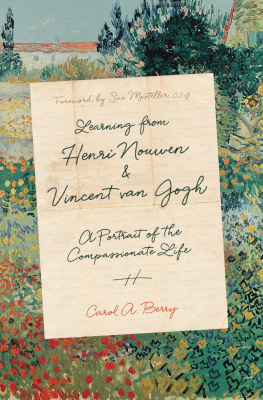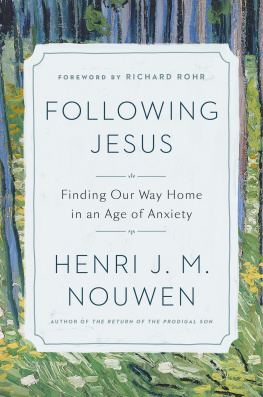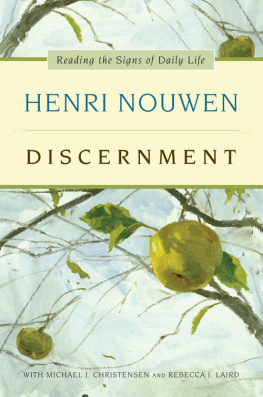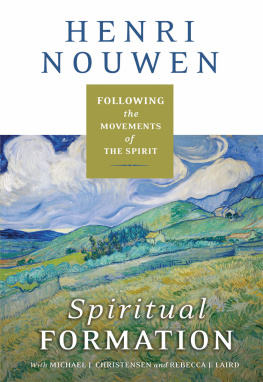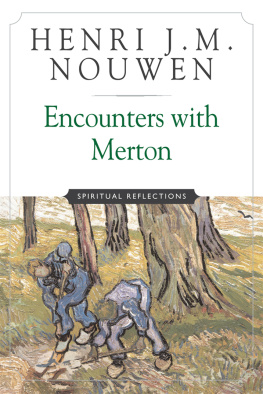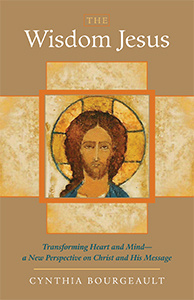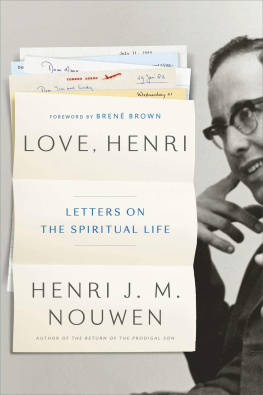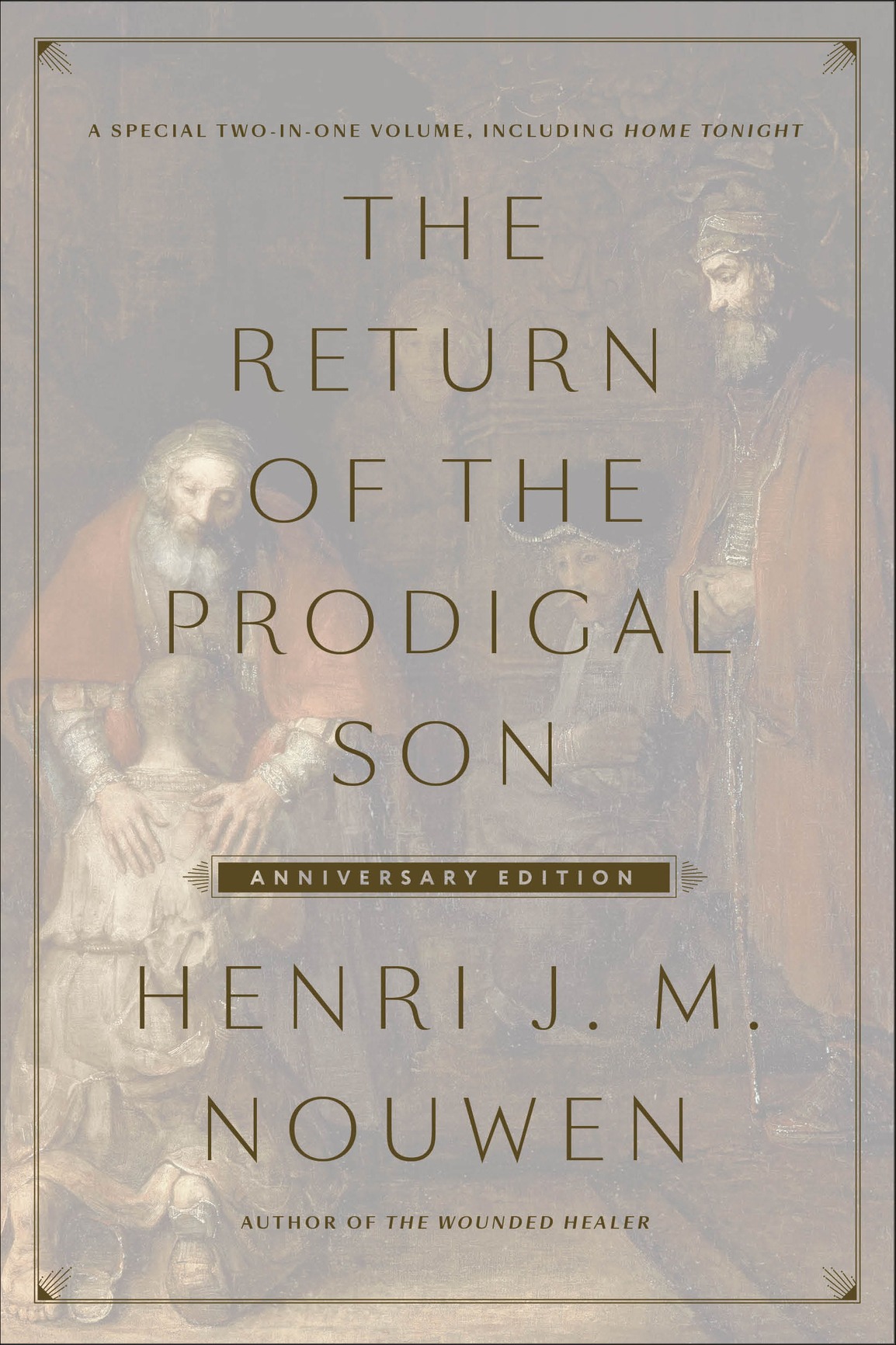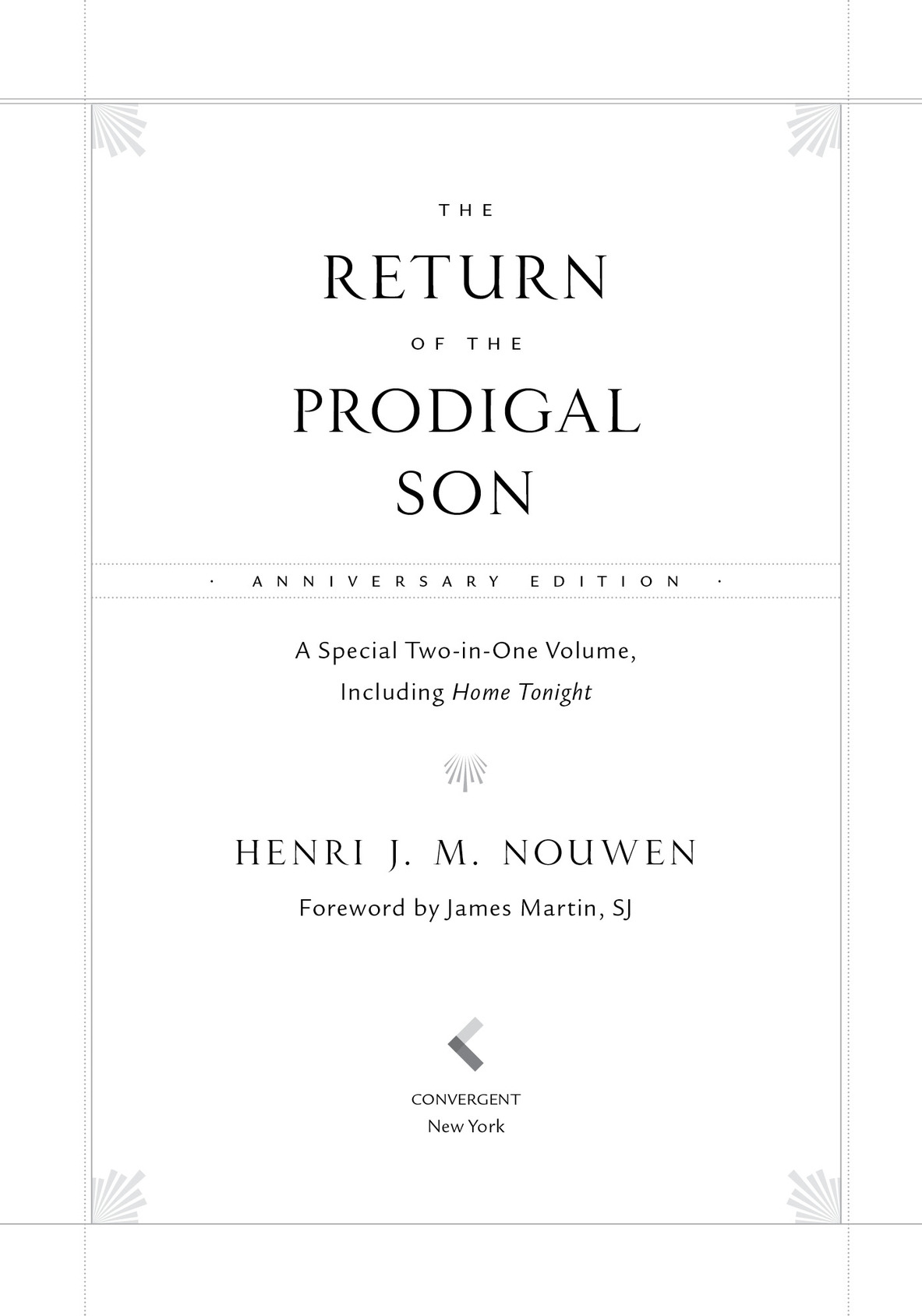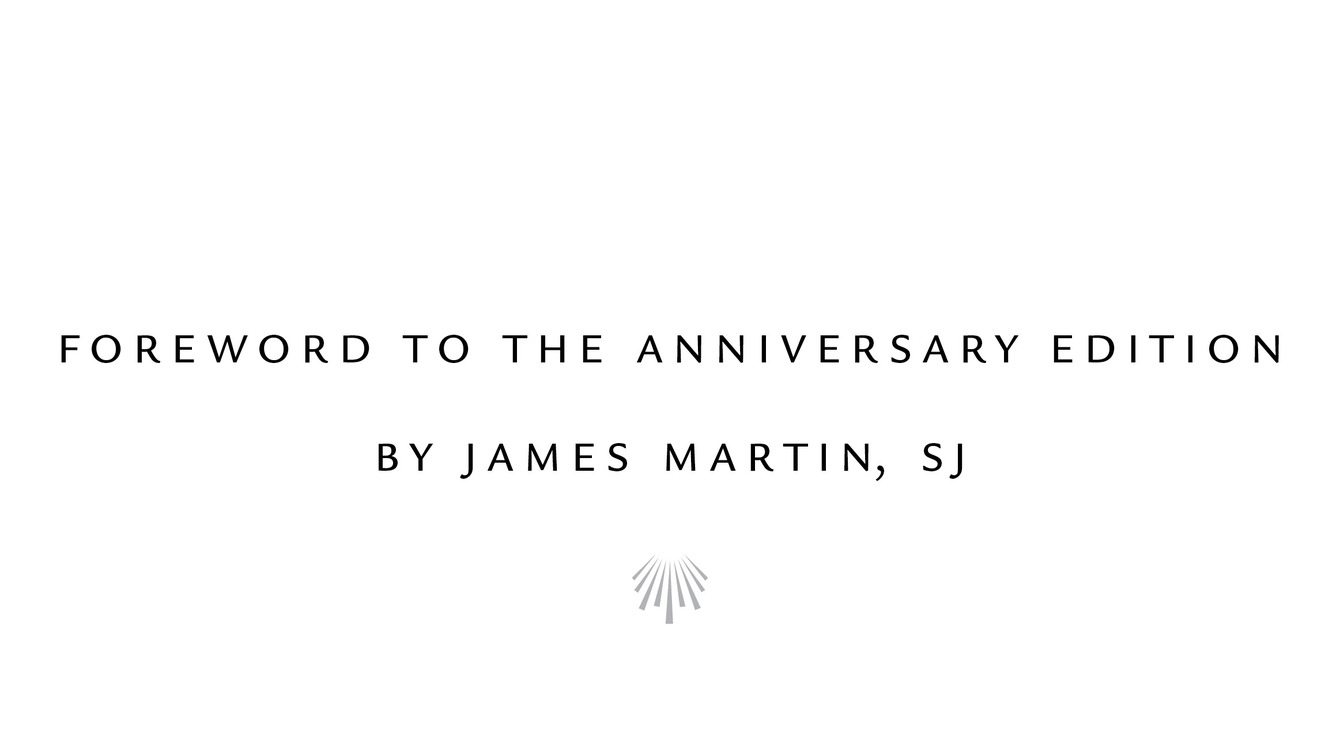OTHER BOOKS BY HENRI J. M. NOUWEN
Aging
Clowning in Rome
The Wounded Healer
The Genesee Diary
Compassion
A Cry for Mercy
The Way of the Heart
Lifesigns
Reaching Out
With Open Hands
The Road to Daybreak
Creative Ministry
The Inner Voice of Love
Love, Henri
2016 Convergent Omnibus Edition
The Return of the Prodigal Son copyright 1992 by Henri J. M. Nouwen
Home Tonight copyright 2009 by Henri Nouwen Legacy Trust
All rights reserved.
Published in the United States by Convergent Books, an imprint of the Crown Publishing Group, a division of Penguin Random House LLC, New York.
crownpublishing.com
Convergent Books is a registered trademark and the C colophon is a trademark of Penguin Random House LLC.
For further information about the Henri Nouwen Legacy Trust, please go to www.henrinouwensociety.com [inactive]
The Return of the Prodigal Son was originally published in the United States in hardcover by Doubleday, a division of Penguin Random House LLC, New York, in 1992 and subsequently in paperback by Image Books, an imprint of the Crown Publishing Group, a division of Penguin Random House LLC, in 1994. Home Tonight was originally published in the United States in paperback by Doubleday, a division of Penguin Random House LLC, New York, in 2009.
LIBRARY OF CONGRESS CATALOGING-IN-PUBLICATION DATA IS AVAILABLE UPON REQUEST.
ISBN9780804189286
Ebook ISBN9780451496041
Cover design: Jessie Sayward Bright
Cover art and images Return of the Prodigal Son, c. 166869 (oil on canvas), Rembrandt Harmensz, van Rijn (160669)/State Hermitage Museum, St. Petersberg, Russia/Bridgeman Images
Foreword by James Martin, SJ
v4.1_r1
ep
Contents
To my father
Laurent Jean Marie Nouwen
for his ninetieth birthday
The book that you are about to begin has changed lives. I know dozens of peopleChristians and Jews, devout and doubtful, agnostics and seekerswho consider The Return of the Prodigal Son their favorite work of spirituality. For many people this is also Henri Nouwens most powerful work. Ironically, at one point in this intensely honest book, he expresses, guiltily, his longing to be remembered after his death. He couldnt have known that this would be the work that would assure his place in Christian spiritual history.
What makes a book that changes lives? Why do so many people, decades after its printing and years after the death of its author, still respond to it? What is different about this work compared with other books that have come before and after it?
These answers vary from person to person, depending on where they are in their spiritual journeys, how they relate to God and what they are looking for.
Let me, then, answer that question for myself, as one of many readers and admirers of Henri Nouwen.
For me, the books power can be explained by three factors. First, it is brutally honest. Second, it offers advice from not only a deeply spiritual man but also a gifted psychologist. And third, it provides a masterful reflection on a single passage from the New Testament.
My first encounter with this wise book was in the midst of a weeklong retreat during my Jesuit training, a few years after the book was first published. I had heard of Henri Nouwen, knew vaguely that he was a Dutch priest and psychologist, but had never read any of his writings. I picked up his book off a dusty shelf in the retreat house library primarily because I liked the Rembrandt painting reproduced on the cover. Return, then, was my introduction to Nouwen.
And what an introduction! The most arresting feature of this book is, for me, the authors near total candor. I had already encountered spiritual writers who wrote candidly about their lives but Nouwens voice seemed to be the most honest I had yet encountered. Perhaps thats because the struggles he discusses at length are those that most people are embarrassed even to admit. A writer might describe the sadness of, say, confronting the death of a loved one or a failed project. But it is a rare writer who describes his or her naked desire to be noticed, loved, or rich, powerful, and very famous, as he says in the book. The burning desire to be liked seemed to be at the heart of many of Nouwens difficultiesas it is with so many of us, myself included.
His transparency still has the power to shock. A friendship that had first seemed promising and life-giving, he writes, gradually pulled me farther and farther away from home until I found myself completely obsessed. One is almost embarrassed reading such intimacies.
Yet this is what drew me almost immediately into the book, cemented my relationship with the author and made me pay attention. Since Nouwen was so frank about his failings, I believed him when he described how he overcame his struggles. Hes honest with me about dark times, thinks the reader, and so Im sure that hes honest with me about the lighter ones. Moreover, his wisdom is hard-won; he does not offer easy platitudes or cheap sentimentality, but the reality of grace that comes after suffering. In short, his trust in the reader evokes trust from the reader.
The second factor that made me love this book is related: the tremendous amount of solid advice that one receives from the author. These days the word self-help is often used pejoratively, as in, Thats just a self-help book. But why wouldnt someone treasure a book that is a help to the selfespecially one that combines the insights of a spiritual master with a psychologist? To that end, let me confess something: Often when I read a book written by a spiritual guru, I find myself wondering, Does this make any sense psychologically? And when I read a book by a psychologist, I wonder, How does this take into account my relationship with God?
With Nouwen the reader discovers an artful synthesis: a deeply spiritual man with psychological training. Consider, for example, this bit of sound advice: Complaining is self-perpetuating and counterproductive. Whenever I express my complaints in the hope of evoking pity and receiving the satisfaction I so much desire, the result is always the opposite of what I tried to get. This is counsel from someone who understands from two vantage points why complaining is so insidious. Not only does it turn people against you, as he explains later, it also extinguishes the desire for gratitude to God. Nouwens wisdom is a fusion of the psychological and the spiritual. And the longer I live the more I realize that both are necessary for lasting human growth.
The third factor that made this book a treasure for me is its intense study of the parable of the prodigal son. This was the first time I had ever come across a Bible story that was, as one of my spiritual directors liked to say, fully unpacked. Exegesis is the theological term: an opening up of a Scripture passage. Most readers, even before reading Nouwens work, will probably be familiar with Jesuss famous parable, which appears in the Gospel of Luke, and will even have some of their own interpretations. As did I. But it wasnt until I read Nouwen that I understood what it meant to immerse oneself so deeply into a single passage. To climb into it. To live it.

